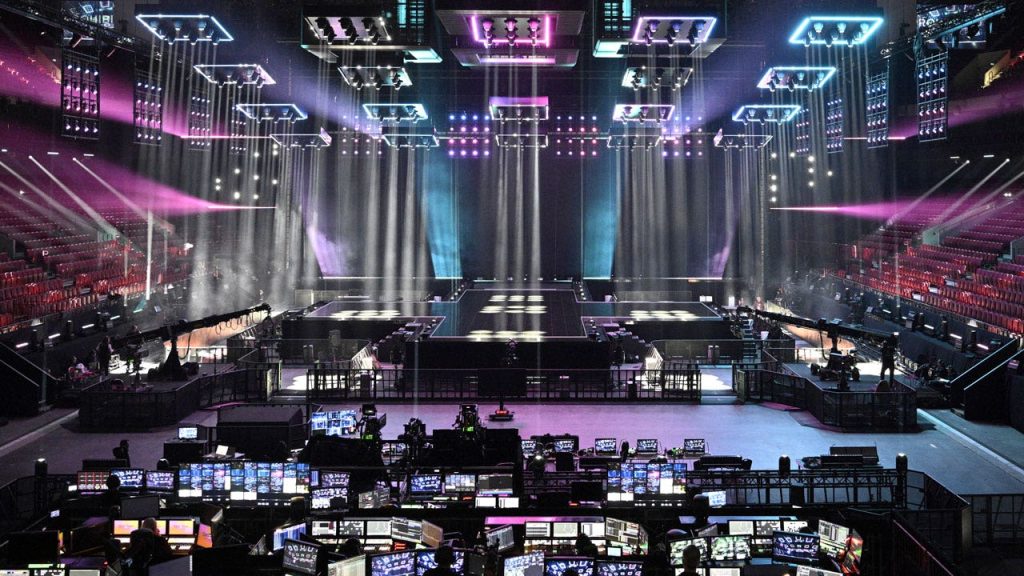Organizers of the Eurovision Song Contest in Sweden have announced that they reserve the right to remove any Palestinian flags and pro-Palestinian symbols at the show due to heightened tensions surrounding Israel’s participation in the event. The European Broadcasting Union, which runs the show each year, stated that ticket buyers are only allowed to bring and display flags representing countries participating in the competition, as well as the rainbow-colored flag. The decision comes as pro-Palestinian groups plan to stage large protests in Malmo to raise awareness of their cause.
The Eurovision Song Contest is an annual music competition that draws hundreds of millions of viewers each year and will take place in Malmo, Sweden from May 7-11. Winners of the competition earn the right for their country to host the following year’s event, with Sweden hosting for a record-equalling 7th time this year. Swedish police have warned that security will be tight at the event due to a threat of terrorism in the Nordic country. Pro-Palestinian activists have announced plans for large rallies in downtown Malmo, several miles from the contest venue, to call for Israel to be removed from the competition.
Last month, Swedish police received an application for a demonstration in Malmo to burn a copy of the Quran before the contest, prompting concerns about potential unrest. Sweden raised its terror threat level last year following a series of Quran burnings that triggered protests in the Muslim world. The decision to ban Palestinian flags and political banners at the Eurovision Song Contest is part of an effort to prevent the instrumentalization of the TV show by protesters. The event is meant to be a celebration of music and culture, and organizers are keen to ensure that it remains a safe and inclusive space for all participants and viewers.
The ongoing conflict between Israel and Hamas has triggered protests and demonstrations around the world, including on U.S. university campuses. The war, which has been ongoing for nearly seven months, has led to increased tensions and polarization, with supporters of both sides taking part in various forms of activism and advocacy. The decision to ban Palestinian flags at the Eurovision Song Contest reflects the broader dynamics of the conflict and the global impact it has had on various communities. As the event approaches, organizers are working to ensure that it remains a platform for artistic expression and cultural exchange while also addressing the sensitive political issues that surround it.
The Eurovision Song Contest has a long history of bringing together artists and audiences from different countries to celebrate music and diversity. The decision to prohibit certain flags and symbols at the event is a reflection of the complex political realities that surround the competition. While the move may be controversial and spark debate, it underscores the challenges of navigating political sensitivities in a globalized world. As the Eurovision Song Contest unfolds in Malmo, all eyes will be on the performers, the audience, and the organizers, as they seek to strike a balance between artistic freedom and political prudence. The event serves as a platform for dialogue, connection, and understanding, and the decision to ban certain symbols is just one part of a larger effort to ensure that the show remains a space for celebration and unity.


